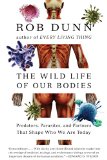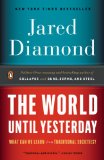Summary | Excerpt | Reviews | Beyond the book | Read-Alikes | Genres & Themes | Author Bio

The Evolution of Ideas (and Ourselves)
by Jonnie HughesRead Jonnie Hughes's On the Origin of Tepees, and you will be stocked with enough topics of conversation to make you the star of every dinner party for the rest of the year. Hughes lays out a smorgasbord of intriguing tidbits to savor, from facts about the unparalleled social lives of naked mole rats, to imagined vistas of the American West when it was populated by millions of buffalo, to bracing new ideas about what it means to be human. As the author's radical vision of cultural Darwinism begins to take shape in your mind, you may find yourself rushing to host your own party, just for a chance to talk and argue over his fascinating meme's-eye view of humanity (a meme is, in essence, a contagious idea - see Beyond the Book for more on this). You may even have to start a supper club.
Hughes takes on the complex task of attempting to square the development of human culture with what we know about the principles of evolution and natural selection at work in the biological world. He isn't working alone - in fact, his project is more of a translation, of laying out the work of other scientists and thinkers in an engaging, instructive narrative form for the lay-reader. Images and anecdotes make his logic vivid in the mind. We get a riveting picture of Charles Darwin, so deep in thought as he takes his daily walk that he kicks stones in a pile to count his laps rather than break concentration. We see the Blackfoot tribe driving buffalo to their deaths over a cliff under the straight-forward heading of "Head-Smashed-In."
Most interestingly, Hughes encapsulates his arguments in the package of a travel memoir. As he works out his thoughts about abstract evolutionary theory, he's drinking truck-stop coffee with his brother Adam on an epic road trip across the American West. The West is supposed to be his Galapagos. He looks on the vast prairies of South Dakota and Wyoming with a foreigner's fascinated eye (he's British), and lets the sights - Crow tepees, the Mall of America - inform the progress of his thoughts. It's an effective strategy. He takes the reader on the road with him, and it's easy and exhilarating to follow.
He is a good storyteller, crisp and funny, and always generous, even when the ideas he entertains become radically complex. Whether his charm, which works so well on the average reader, will win over specialists in the field remains to be seen. He has a knack for making his argument seem perfectly easy and reasonable, and it seems likely that he is glossing over worlds of controversy in the process. Some readers may find it hard to swallow the breezy, narrative flavor of the book, or may fear that the soft tone conceals a lack of hard science. The balance he strikes reminds me of Radiolab, the popular storytelling science show from WNYC radio in New York City. In fact, when I started reading, I had the uncanny feeling I'd already heard some parts of the book on Radiolab. Turns out I had - Hughes did a segment on the origin of the cowboy hat on Radiolab's "Patient Zero" episode, aired in November 2011.
There is no question, however, that Hughes is a master of metaphor. The elaborate "goggles" metaphor he lays out in the first chapter is an imaginative tour-de-force. When you see the world through Darwinian "goggles", it's hard to make sense of human beings. We are over designed. Hughes dismisses supernatural explanations using philosopher Daniel Dennett's parable about "skyhooks" - the irrational assumption that the only way to explain a skyscraper's soaring height is to assume the highest bits were built by magical hooks coming down from the sky, rather than the usual cranes. With God out of the way, Hughes dons a pair of fresh goggles that lets us see human culture by a new logic, where Darwinian processes are still at work, and where memes are the new genes.
The author's vision of humanity does not leave a moral vacuum, however, even after he takes away the possibility of "skyhooks". His delight and enthusiasm for replicating memes is infectious, and he does not shy from taking his viewpoint into moral terrain. There are good memes and bad memes. And many BookBrowse readers will likely come away from On the Origin of Tepees with a strong reinforcement of their core values. In Hughes's schema, one of the best ways to further the progress of humanity is to experience books - to read good books, to write good books, and to pass them on. The evolution of ideas is what we live for.
To hear Jonnie Hughes talk about "The Evolution of Ideas (and Ourselves)" - the subtitle of On the Origin of Tepees - click on the video below:
![]() This review
first ran in the August 22, 2012
issue of BookBrowse Recommends.
This review
first ran in the August 22, 2012
issue of BookBrowse Recommends.

If you liked On the Origin of Tepees, try these:

by Rob Dunn
Published 2014
A biologist shows the influence of wild species on our well-being and the world and how nature still clings to us - and always will.

by Jared Diamond
Published 2013
The World Until Yesterday provides a mesmerizing firsthand picture of the human past as it had been for millions of years - a past that has mostly vanished - and considers what the differences between that past and our present mean for our lives today.
Your guide toexceptional books
BookBrowse seeks out and recommends the best in contemporary fiction and nonfiction—books that not only engage and entertain but also deepen our understanding of ourselves and the world around us.